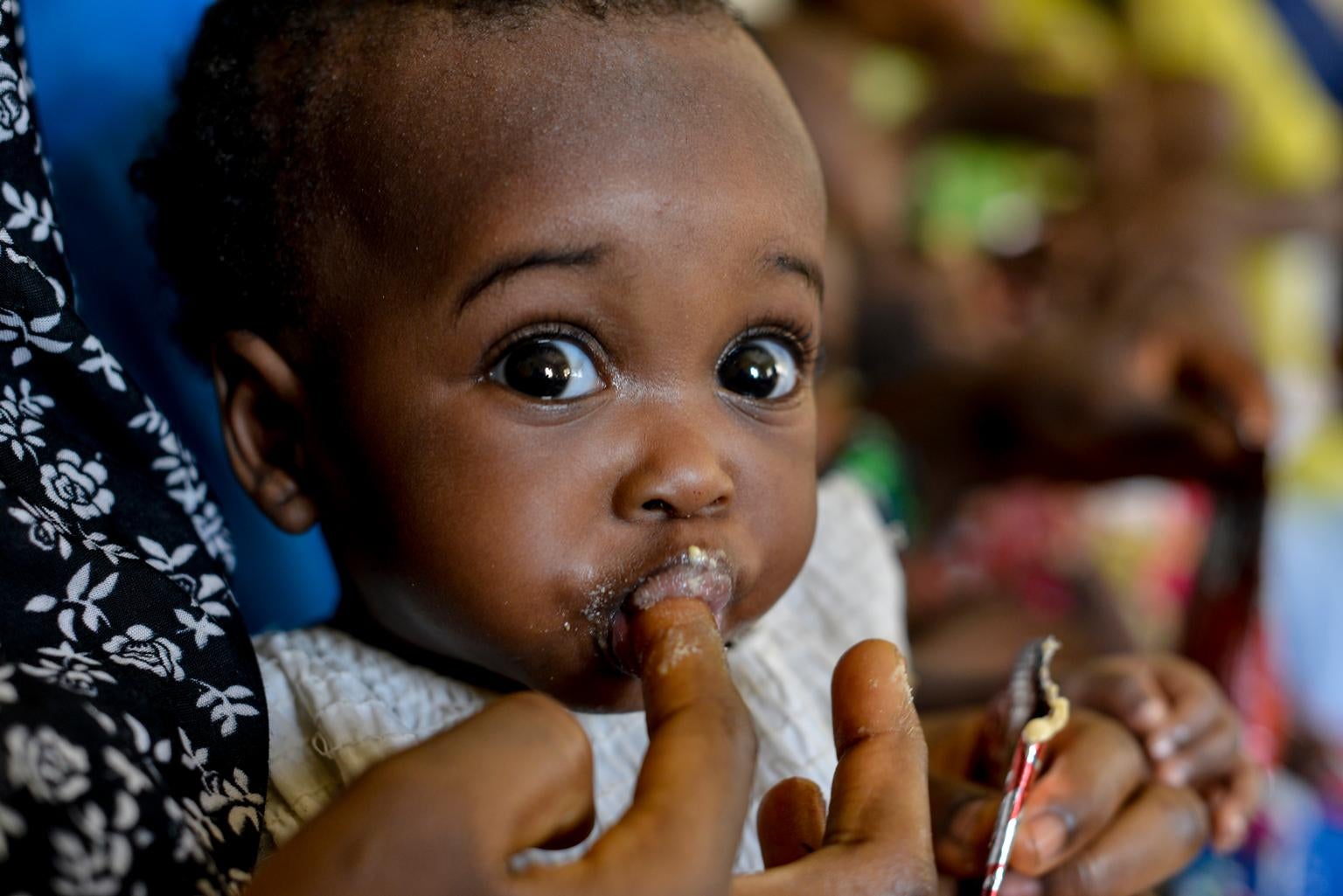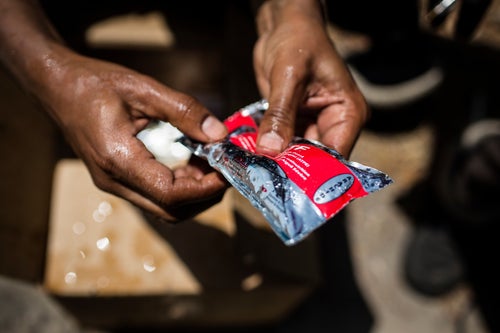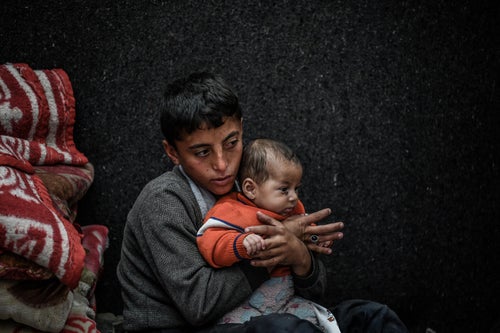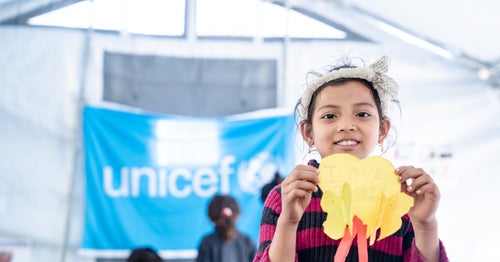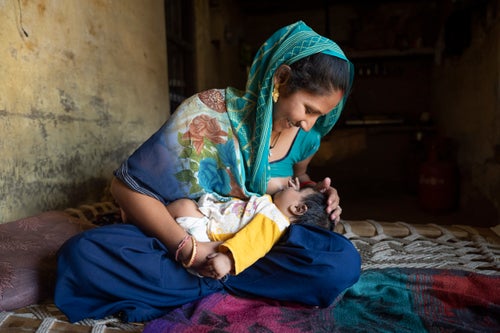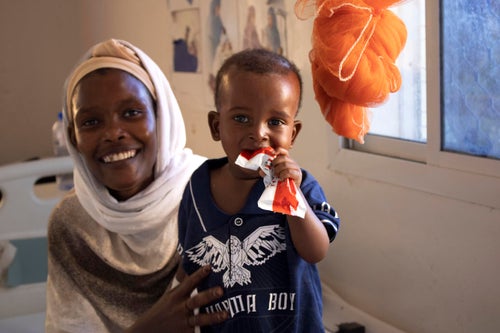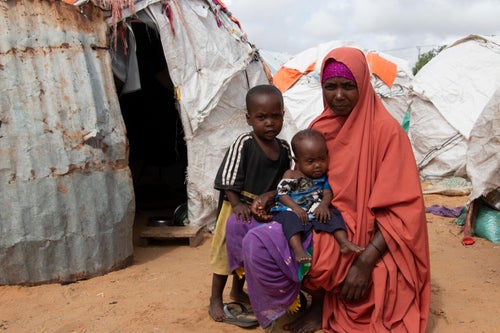For decades, we’ve been shown a black and white view of children in famine. We’ve seen emaciated families without names, voices or stories - as if hunger was the sum of their lives and all they knew was despair. Where are the stories of strength and determination? It’s time to show the full picture.
Right now, famine is dangerously close to wreaking havoc in Somalia, Nigeria, South Sudan and Yemen. 1.4 million children are already severely malnourished and we can’t shy away from their terrible reality. But no one is defined by their suffering - we all have a bigger story to tell.
These 21 photos show the true courage and resilience of communities facing famine.
Mothers determined to protect their children
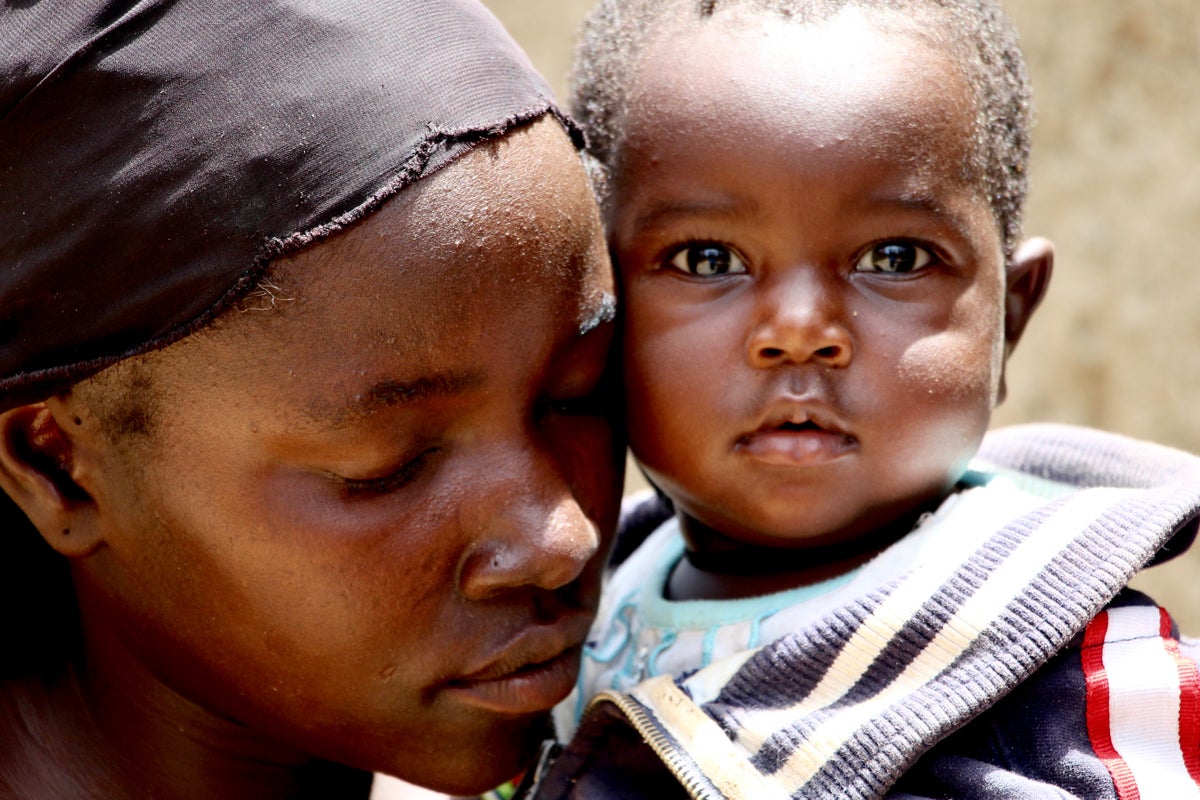
It was twilight when Boko Haram attacked Dzam-Dzam’s village in northern Nigeria, killing her husband and two of her children. When the gunshots stopped, she escaped on foot with her other two boys.
“We started running, running, running without turning back,” remembers Dzam-Dzam.
There was no time to mourn. Her three-year-old was rapidly losing weight and her seven-year-old was extremely sick. “He died before we reached the border. But I just had to keep walking. On the road, everyone was starving and I couldn’t find food for my young boy, nor myself.”
She walked through the blazing heat for seven days straight, determined to save her last living son.
Finally, Dzam-Dzam reached a safe haven in Cameroon, where UNICEF is treating children for severe acute malnutrition. “Here, people really take care of our children,” she says. “Look at my son. He is in good health now.”
Hard-working farmers who can’t change the weather
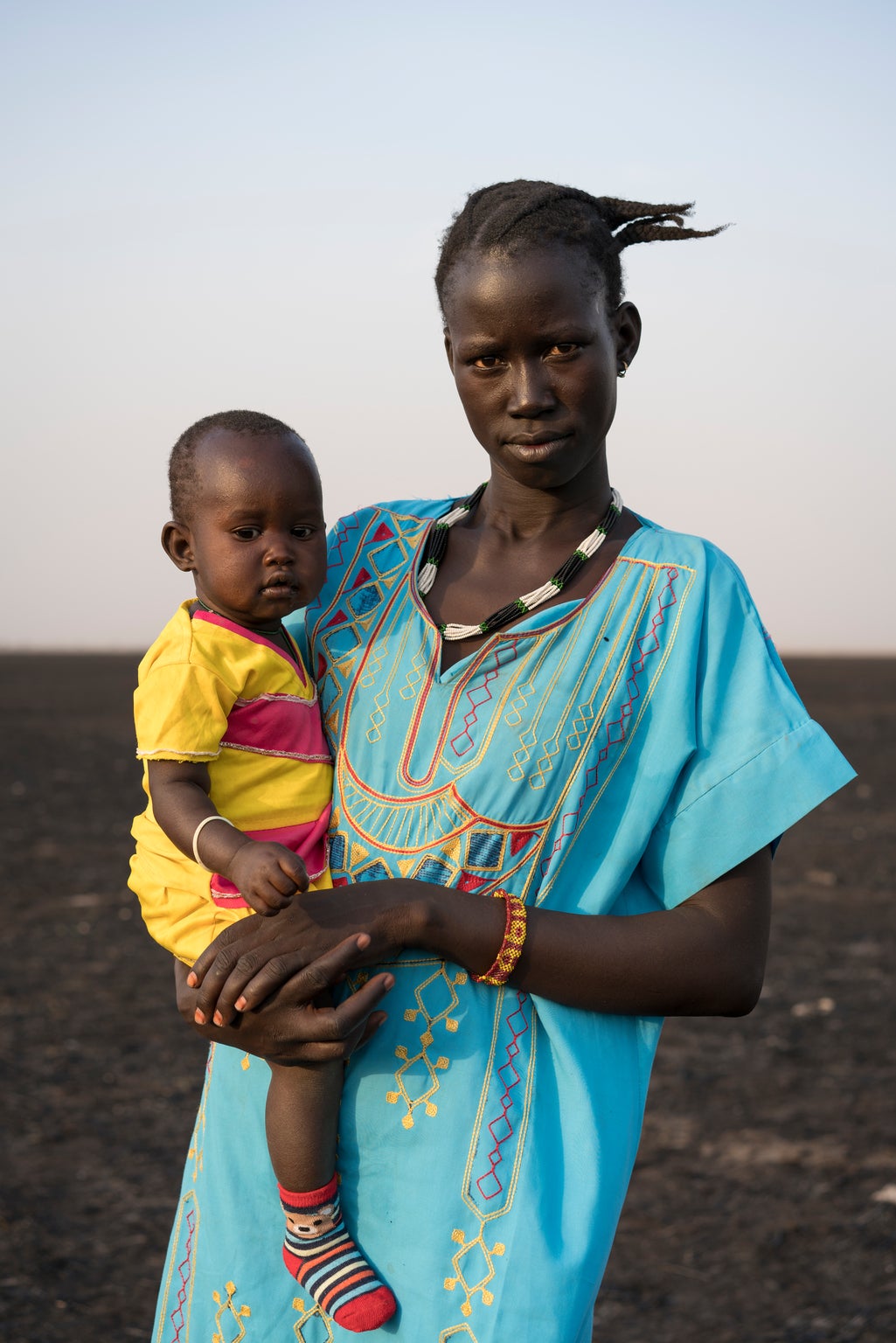
"I am breastfeeding him but I have two other children and I worry about our food,” says Ayak, as she carries her 11-month-old son back from the market near Aweil, South Sudan.
“Before it was simple to feed them. Our cultivation was good because of the good rains but that isn't the same anymore.”
Conflict and harsh weather have ruined local farming, driven the price of food staples nearly ten times higher and thrown the country into crisis.
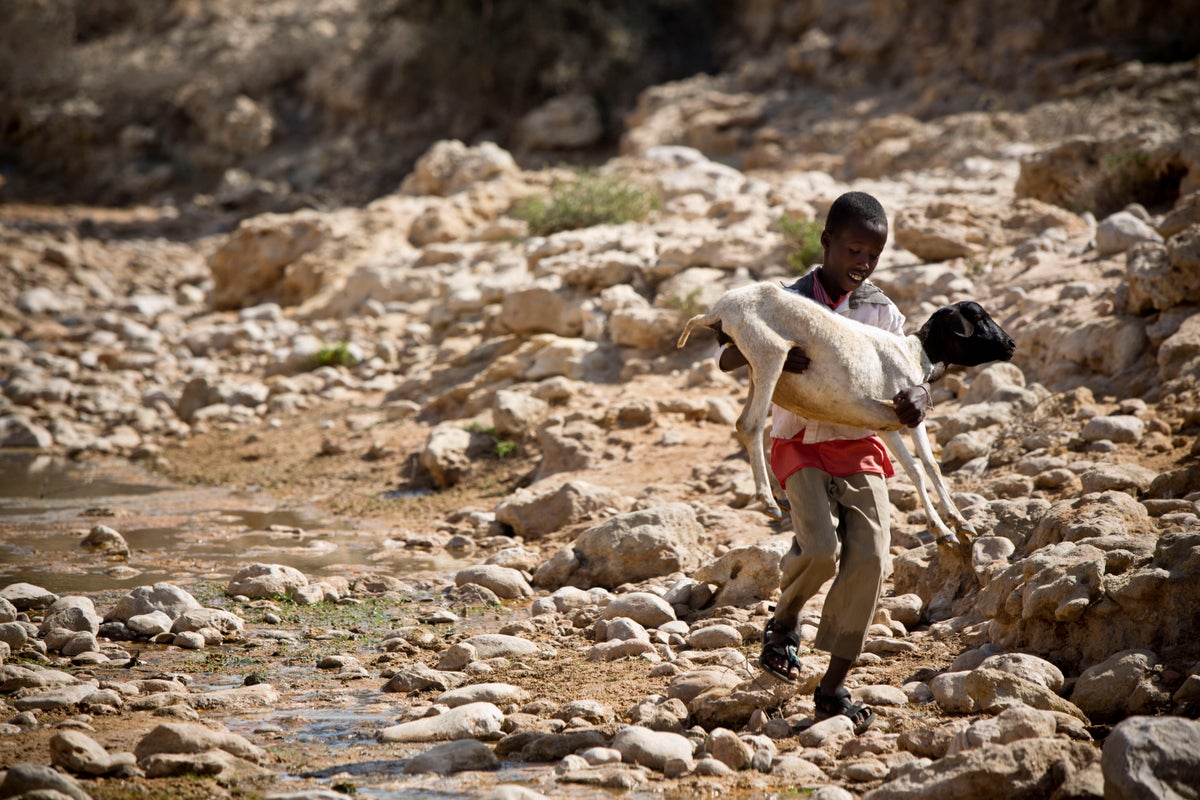
The failure of two consecutive rainy seasons has left Somalia in the grips of a severe drought.
As grass withered away from the land, animals were left with nothing to graze on. This boy’s family lost three quarters of their livestock but he’s determined to do whatever it takes to keep the others alive.
One by one, Eid carries his sheep down to the river to drink from the few remaining pools of water. He’s not giving up.
Shoppers doing their best with 800% inflation
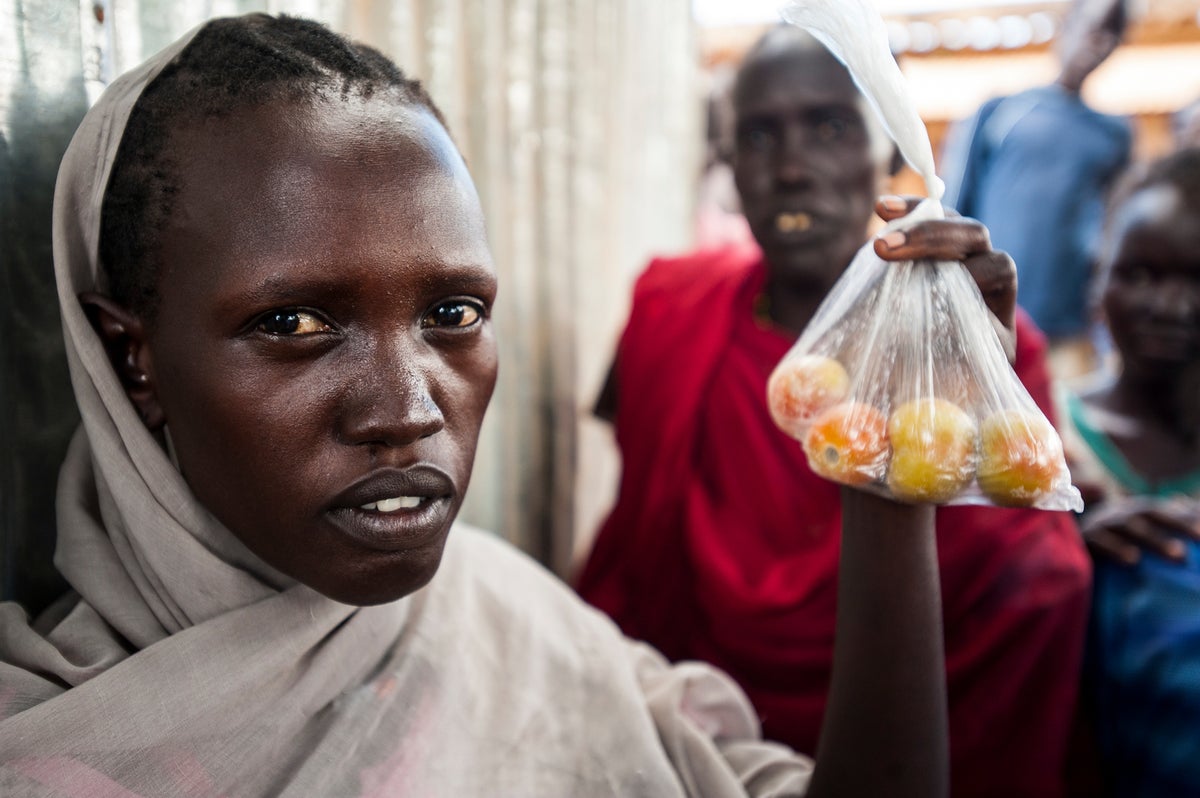
These tomatoes cost a small fortune. Years of brutal violence in South Sudan have disrupted farming, torn away families' livelihoods and decimated the country's food supply. Now, everyday foods have become luxury items.
"I have no more money to buy any other food than these tomatoes,” says Aciengkuan.
“I have four children and a husband who is not working and has no source of income. Life is so very difficult. I can only give my children one meal a day now and that is not nearly enough."
Children going the extra mile for a glass of water
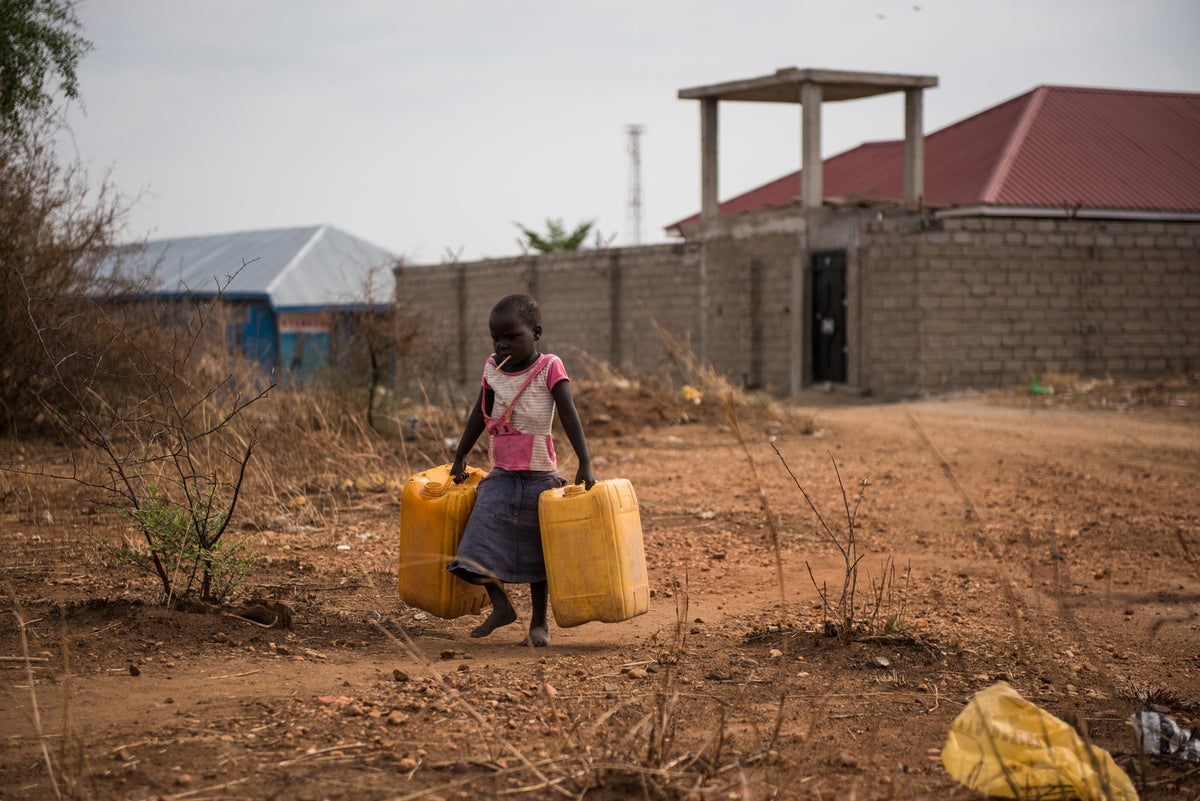
The jerry cans are almost as big as her but she gets on with the job, carrying them to a local tap to collect water for her family.
Like many taps in Juba, South Sudan, the water comes untreated from the river and puts young children like this in serious danger of disease. An outbreak of cholera last year infected 4,500 people in this community, killing 83.
Now, UNICEF is providing chlorine to treat the water and keep families safe.
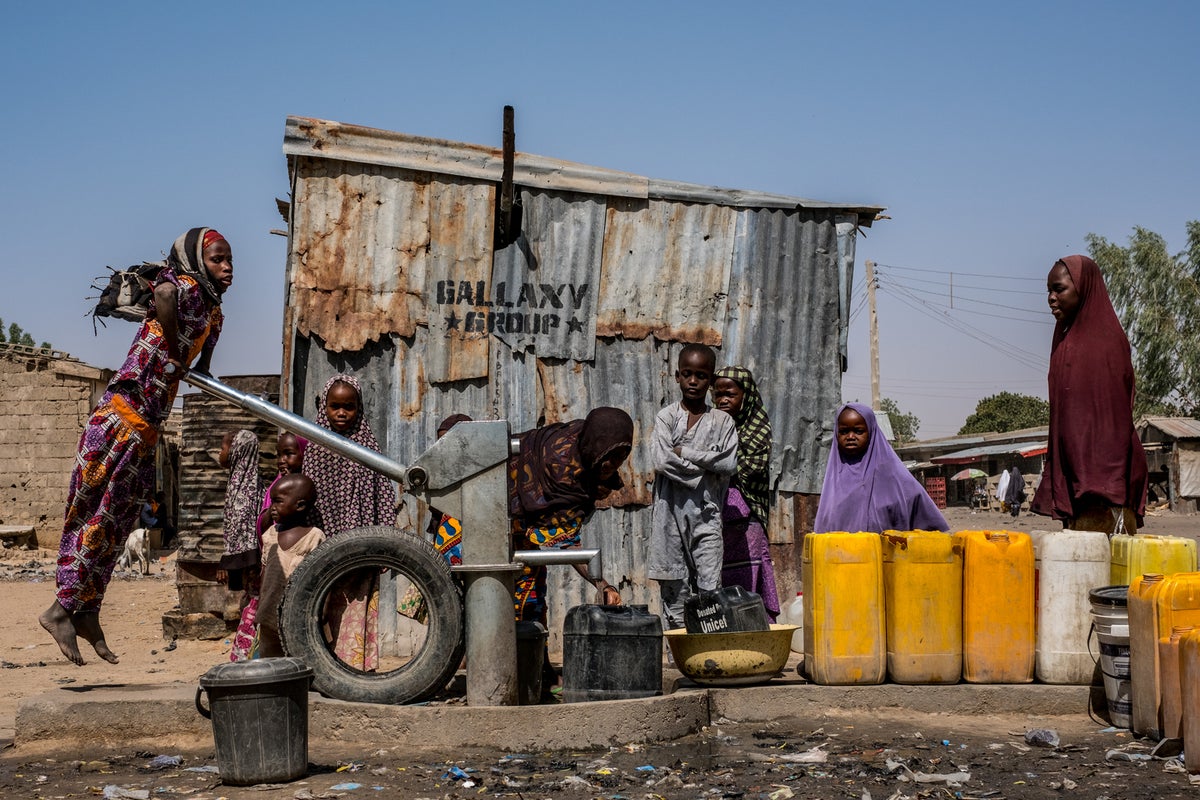
UNICEF installed this borehole in Nigeria but it’s the children who work hard for every drop of water, taking turns to pump it by hand.
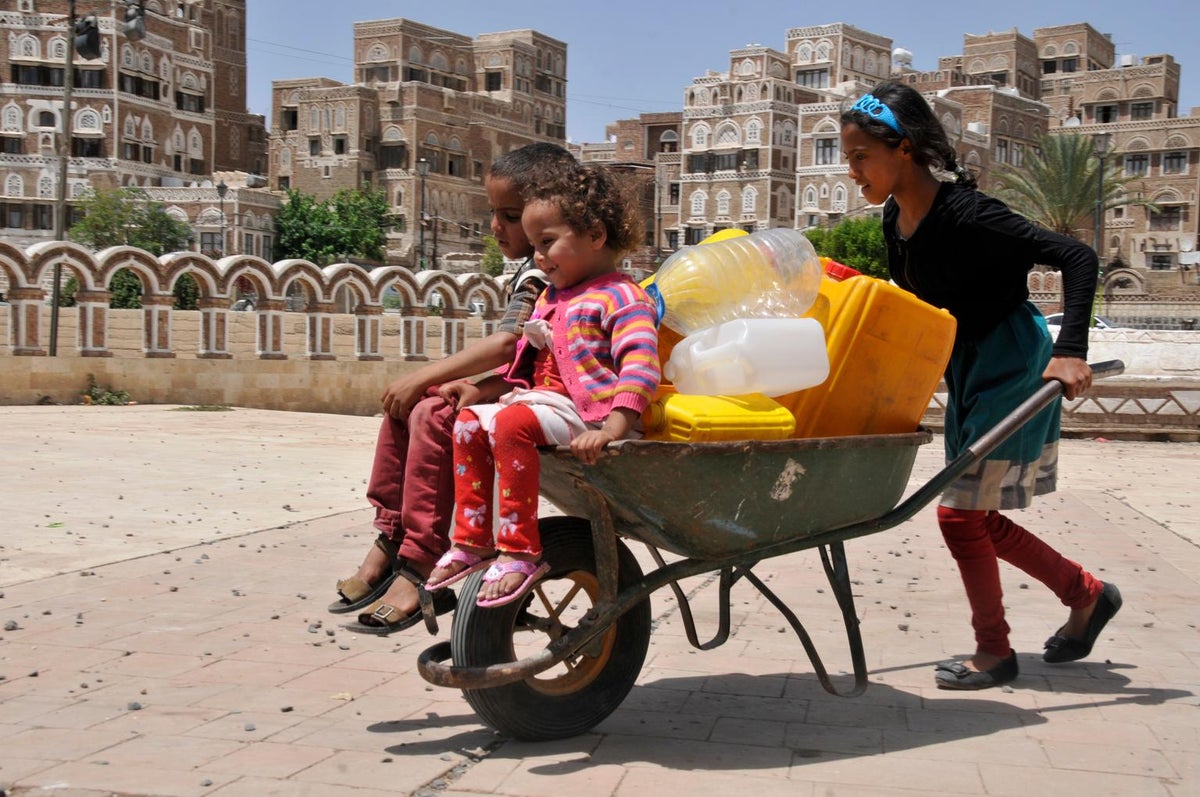
Safe water has never been more important for the children of Yemen.
War has cut off supplies of drinking water to two thirds of the country and left half of its health facilities out of action. These are nightmare conditions for the spread of disease.
An outbreak of cholera in Yemen has infected more than 65,000 people and, at the time of writing, that number continues to soar. More than 1,000 children are seeking treatment for acute watery diarrhoea every day and too many have already died.
UNICEF has flown in over 40 tonnes of medicines, rehydration salts, intravenous fluids and other life-saving supplies to treat 50,000 patients. We're disinfecting wells, delivering safe water and giving families the hygiene kits they need to stop this scourge and save their children.
Kids being kids
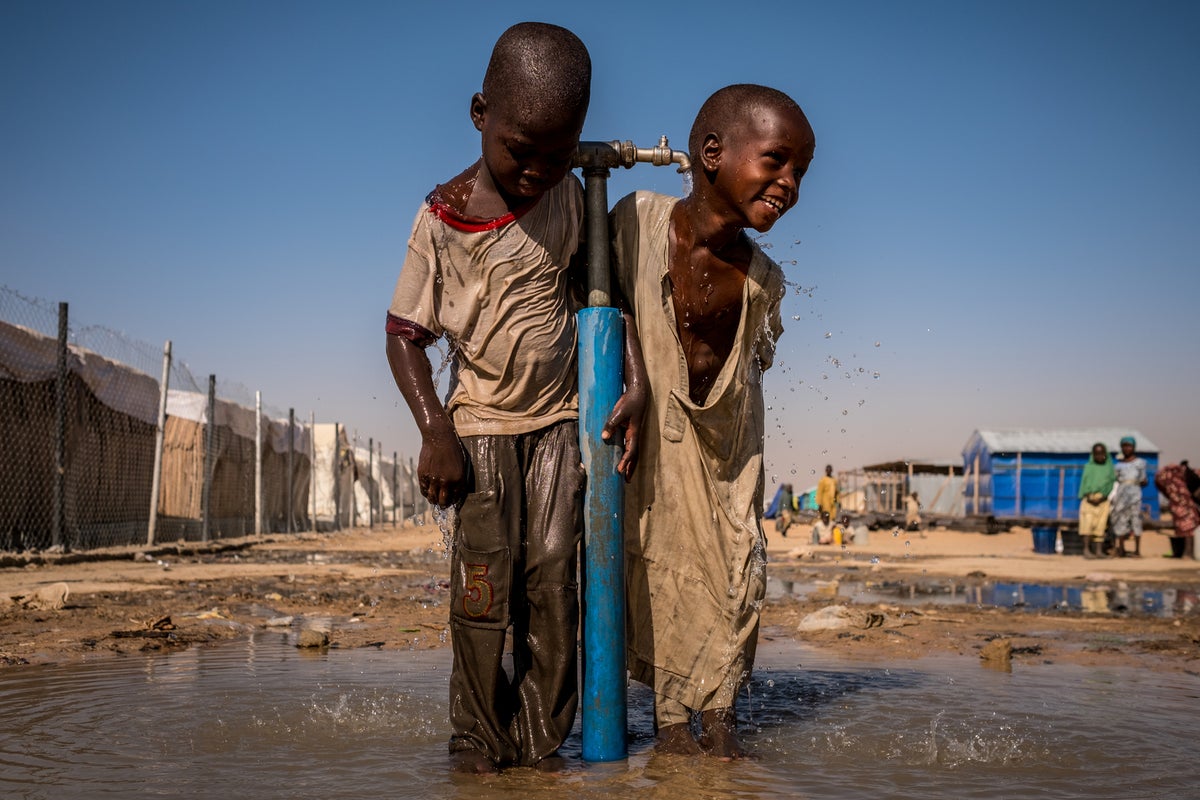
It’s universal: the simple joy of splashing about in clean, cool water on a hot day.
These boys took their chance to play under a tap during recess in Maiduguri, Nigeria. UNICEF is supporting the school for children who have been displaced by Boko Haram’s violence. In 2017, our teams are working to provide safe water to 1 million people affected by the crisis.
Families on the move, taking charge of their own survival
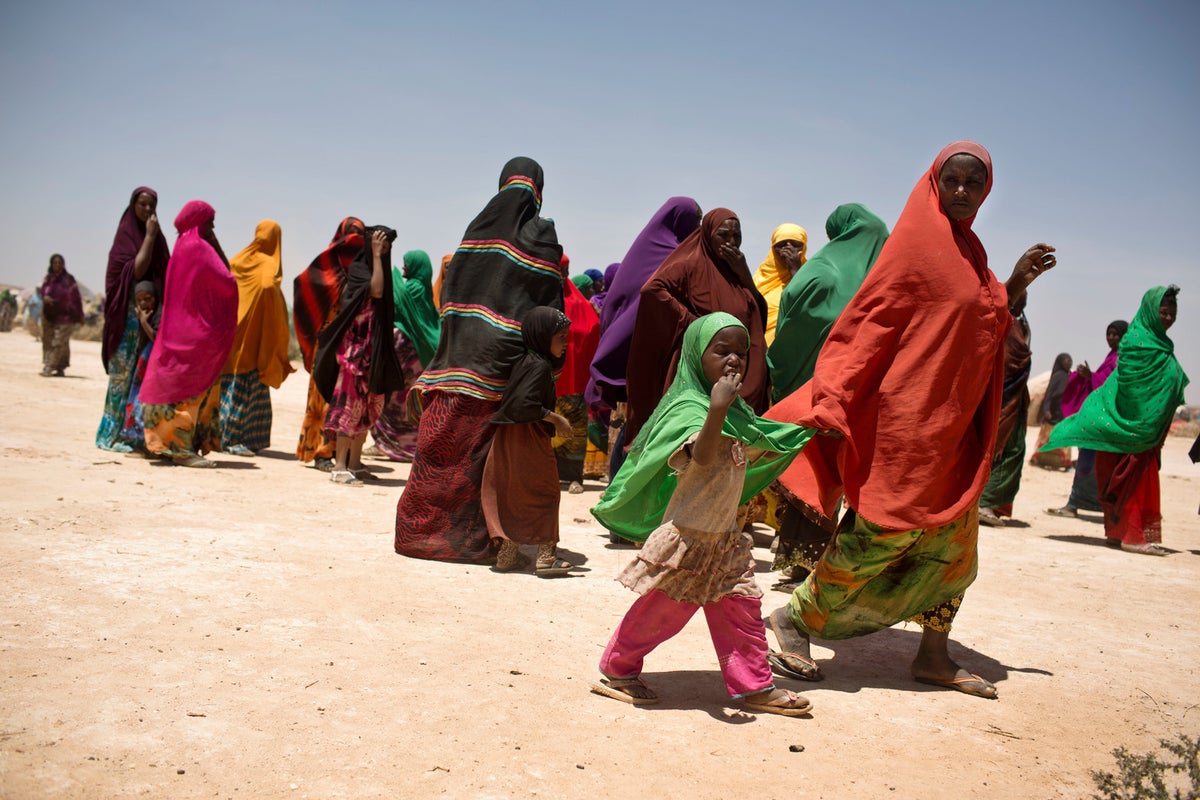
Since November 2016, drought has forced more than 683,000 people in Somalia to leave their homes in search of food, water, health care and a better life.
“There is nothing where we came from,” says Amina, a mother of five from the mountains. The family decided to leave their home when the last of their camels and goats died. They walked for two days to reach a makeshift camp in Somaliland, where UNICEF is supporting a mobile medical unit.
Health workers saving lives every day
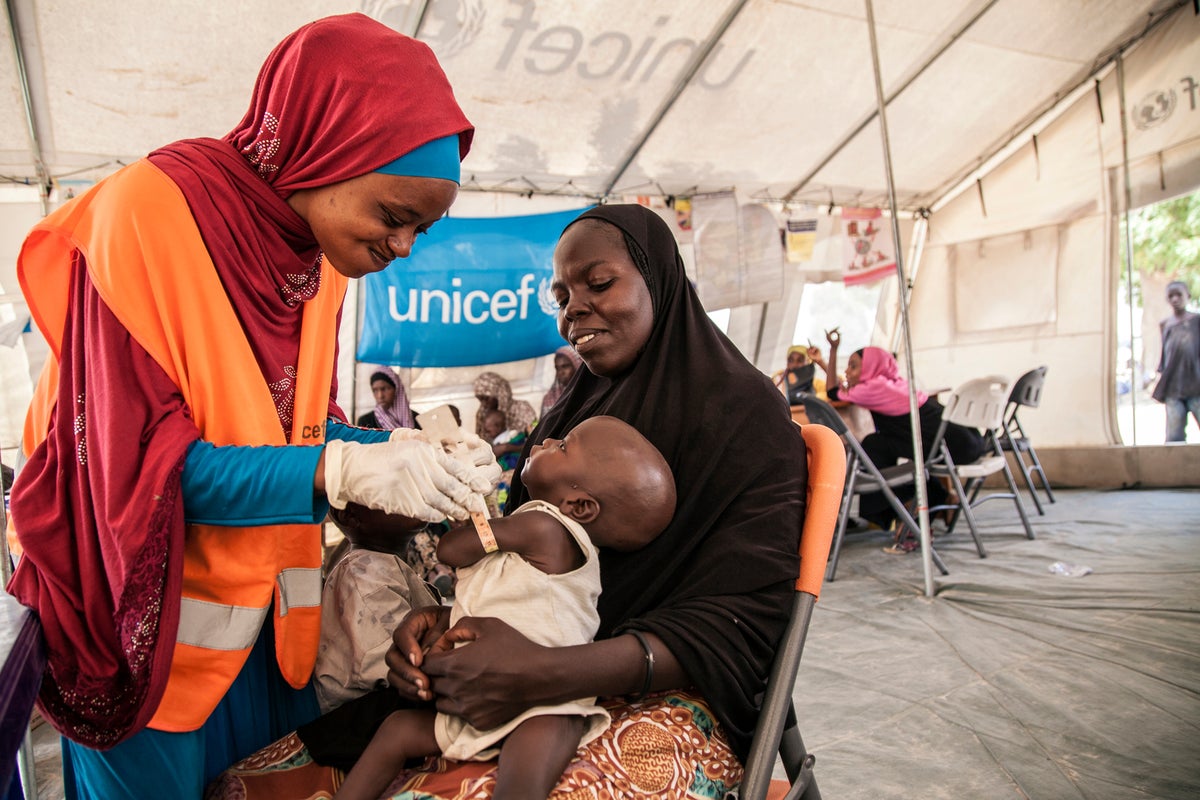
Aishat Abdullahi is a humanitarian hero. She works long, hard days with a UNICEF health clinic in Nigeria, treating young children for malnutrition and doing her best to keep them smiling.
"The child is severely malnourished and dehydrated," explains Aishat. "Umara looks very down. He doesn’t laugh, he doesn’t play, he does not look okay at all." Aishat shows Umara’s mother how to feed her son with a packet of therapeutic food - a peanut-based paste that's high in calories and full of added vitamins and minerals.
"When Umara came for the third visit, he was looking okay," says Aishat, smiling. "He was playing, laughing, he does not have any problem."
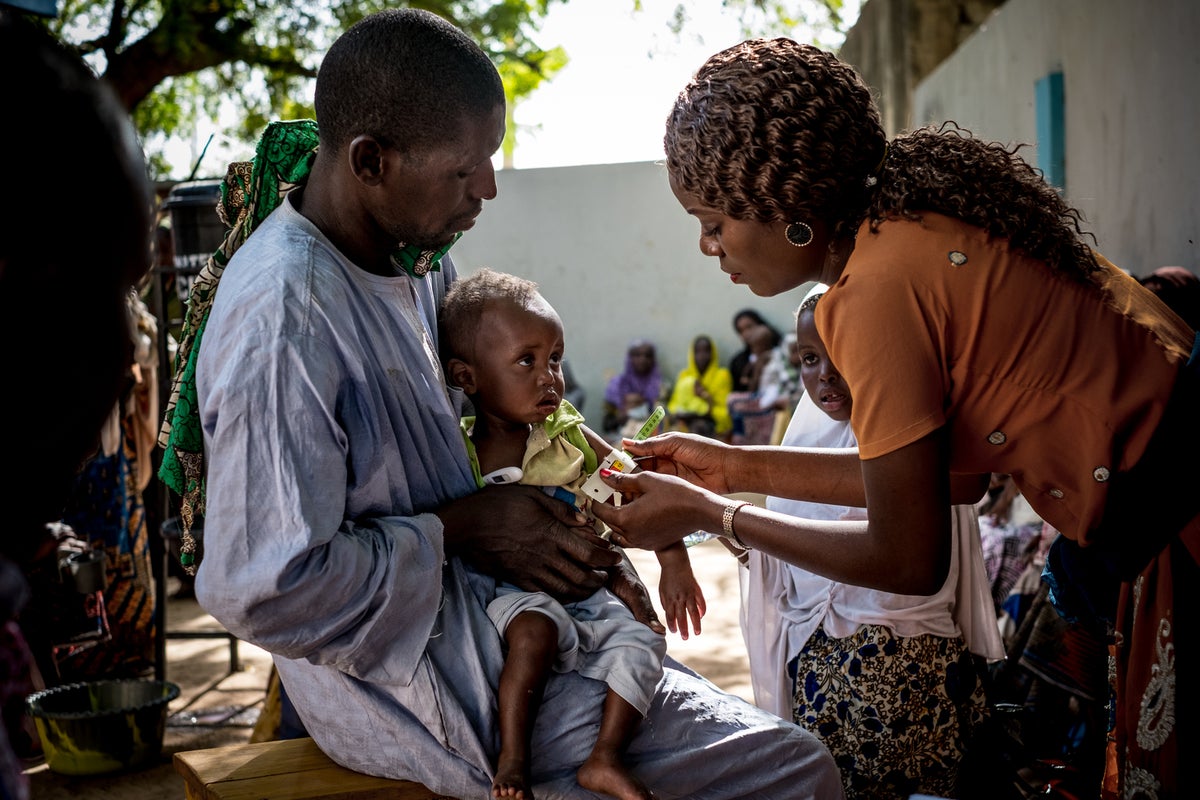
International support is crucial in a food crisis but it’s the local health workers who make everything possible. This year, committed staff and volunteers in Nigeria are working to treat 220,190 children for severe acute malnutrition.
Doctors trying to work in the middle of a war zone
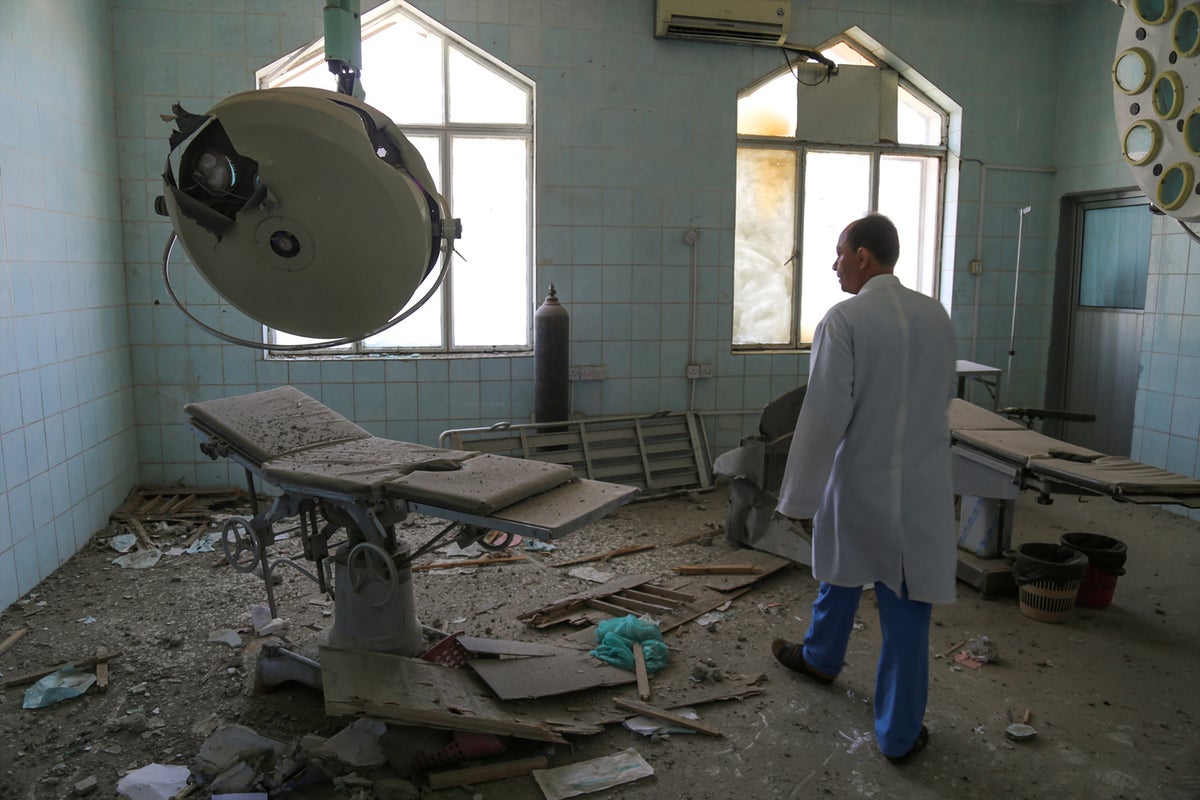
Two years of war have left Yemen's healthcare system in pieces. 54% of facilities are destroyed, too dangerous to operate or just have no one left to staff them. Empty rooms like these around the country mean that every ten minutes, a parent in Yemen loses their child to a preventable disease.
Local doctors are doing their best to fill the void and UNICEF is standing by them. We’re supporting emergency clinics, mobile health teams and nationwide vaccination campaigns. We’re training more doctors and health workers, delivering tonnes of medicines and helping save lives every day.
Proactive screening to find and treat sick children early
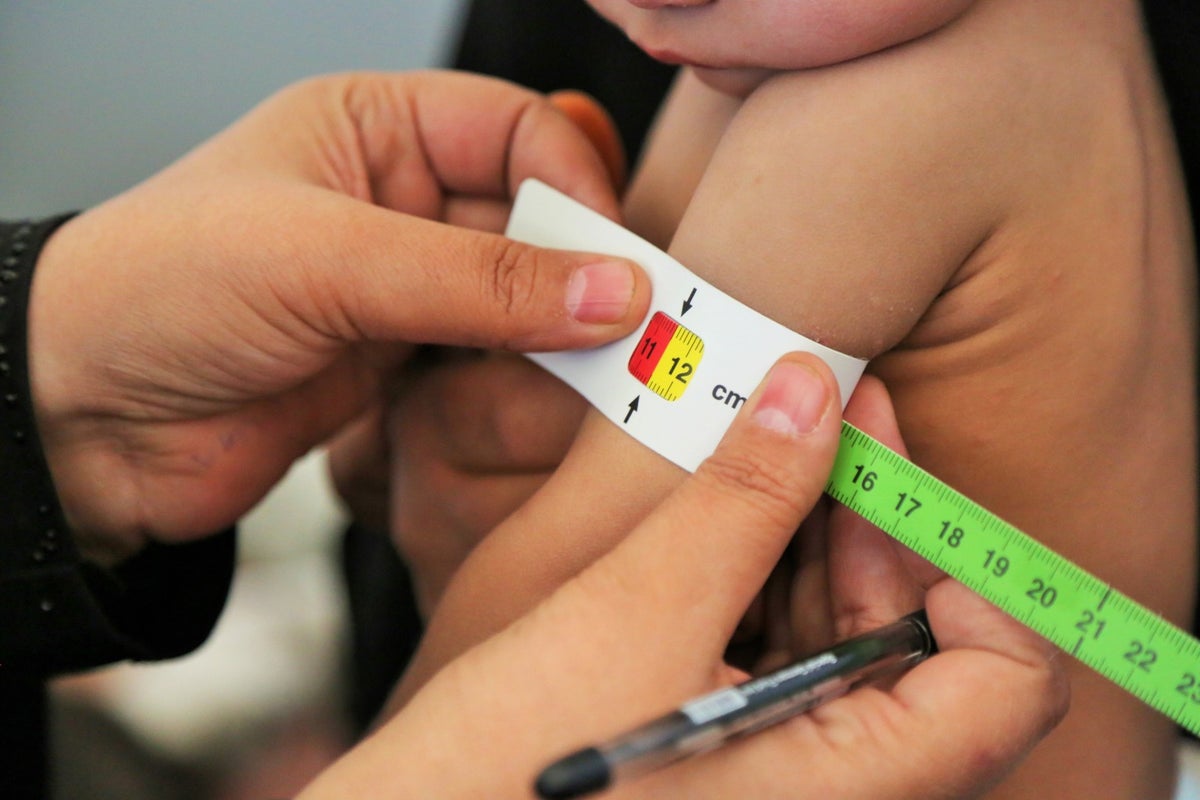
When a child has malnutrition, every day counts. Early detection significantly improves a child’s chance of survival and recovery, so UNICEF trains community health workers to identify the initial symptoms. One of our best tools is a simple plastic tape which measures the circumference of the upper arm. If a child falls in a red zone, she has severe acute malnutrition and we have to act fast.
The race is on to screen a generation of children caught in Yemen’s food crisis - the largest in the world today. Attacks on ports, roads and factories have crushed local food supplies while naval and aerial blockades have cut off a lifeline of imports. Parents have run out of food for their families and half a million children are severely malnourished.
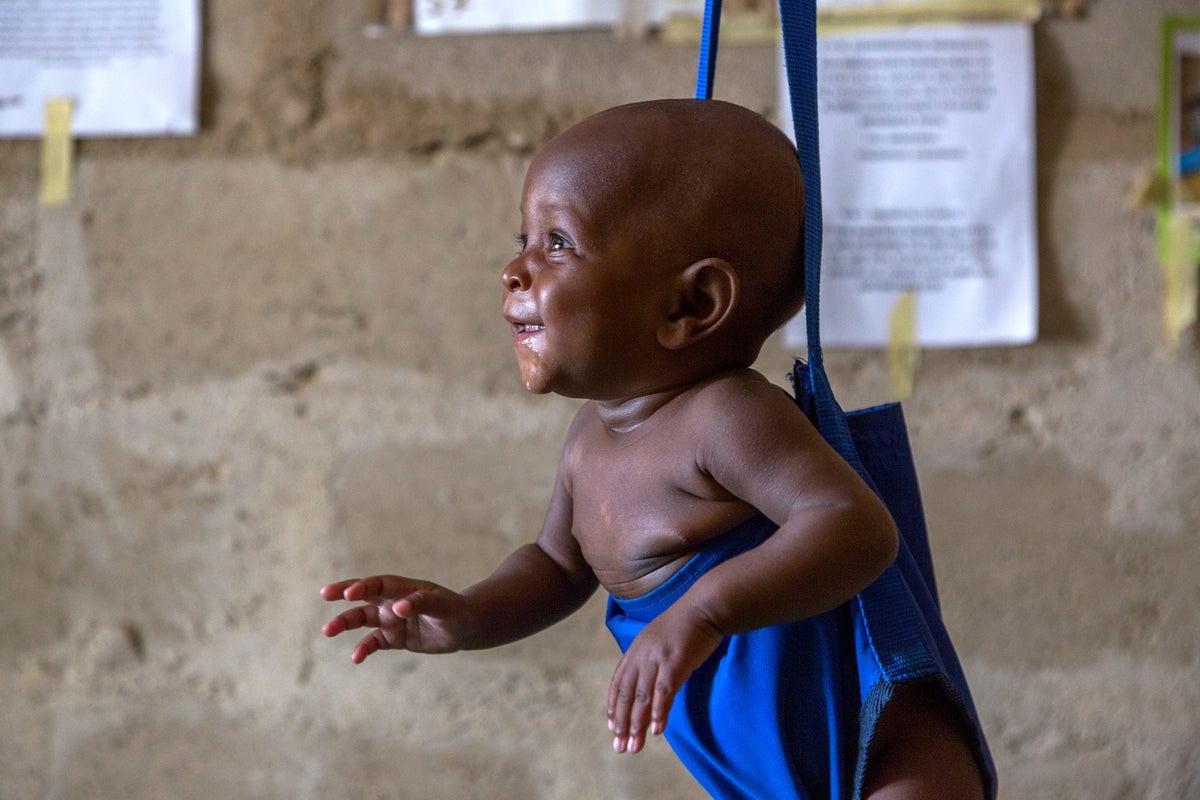
Falmata might be enjoying the ride but this is no baby swing - she is being weighed in a Nigerian health centre. The checkup showed signs of malnutrition but with early intervention and ongoing care, she has a good chance of making a full recovery.
Supplies reaching children on a massive scale
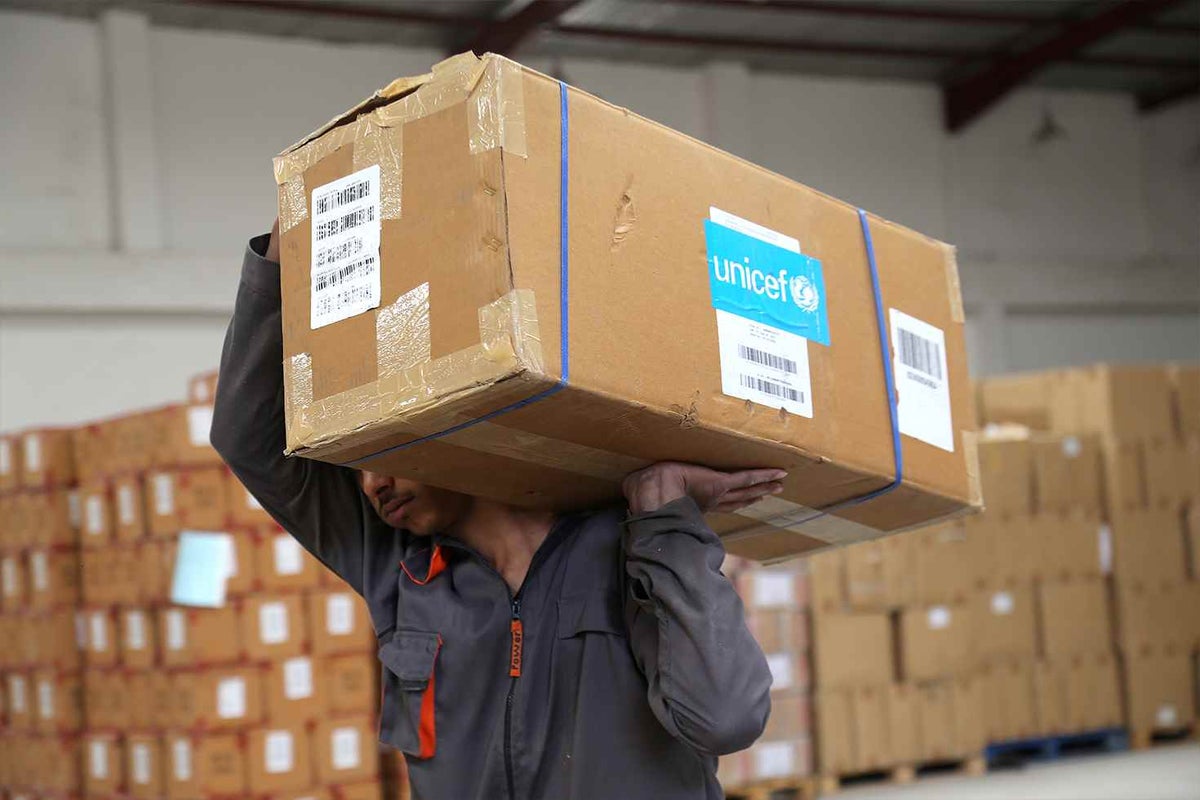
UNICEF has mobilised a huge operation to deliver emergency supplies throughout Yemen. In 2016, local staff helped to distribute:
- Therapeutic food and milk to treat 237,000 children.
- Micronutrient supplements for 4.1 million children.
- Hygiene kits for more 397,000 people.
- Measles vaccines for 650,430 children and polio vaccines for 4.8 million.
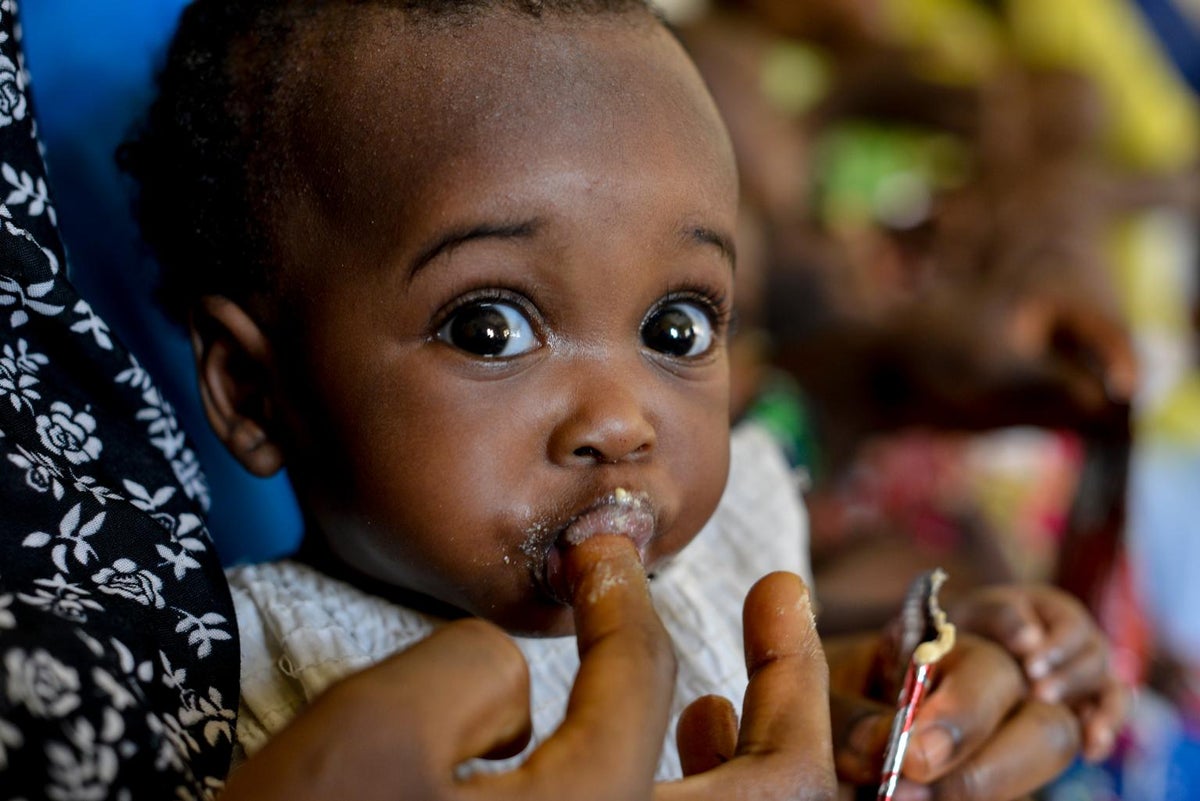
Every packet of therapeutic food helps a malnourished child munch her way back to good health. UNICEF is the world’s largest buyer of this life-saving paste, purchasing 80% of global supplies every year.
Parents nursing their little ones back to health
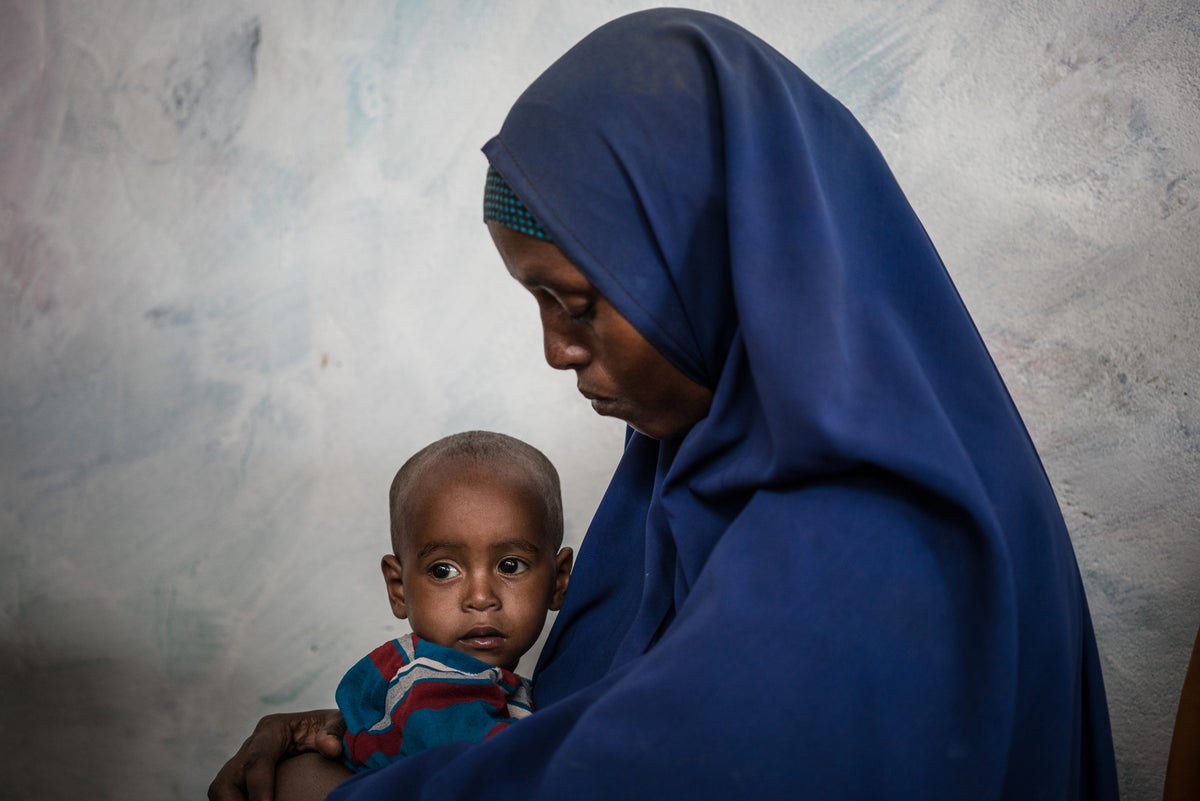
This mother keeps a close watch over her malnourished son, cradling him close as he waits for treatment in Somalia. UNICEF helps with medical supplies but she’ll be the one to nurse her boy to recovery, giving him all the love and affection he needs to grow up healthy.
Stunning recoveries
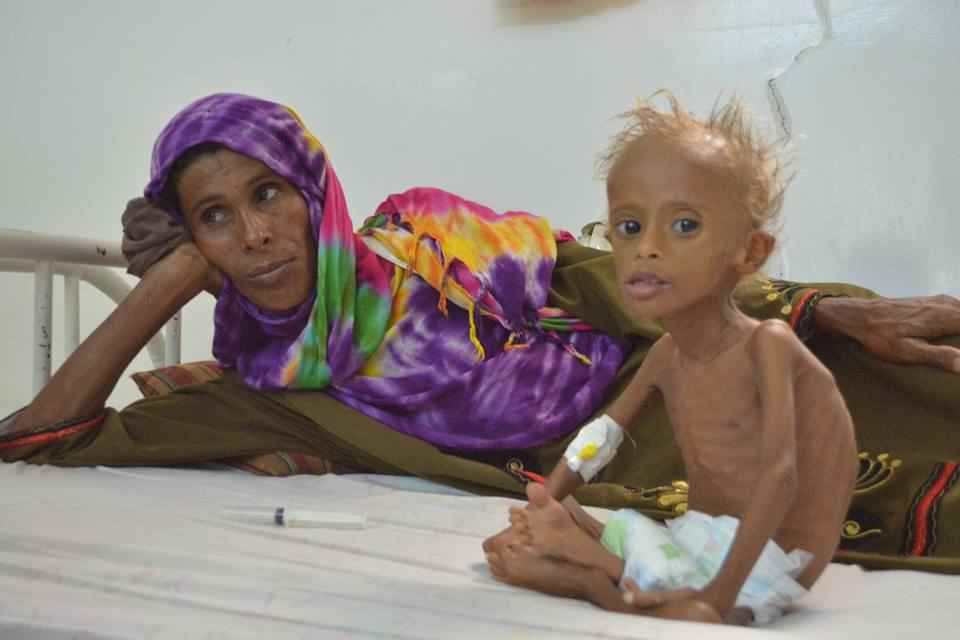
Five weeks later
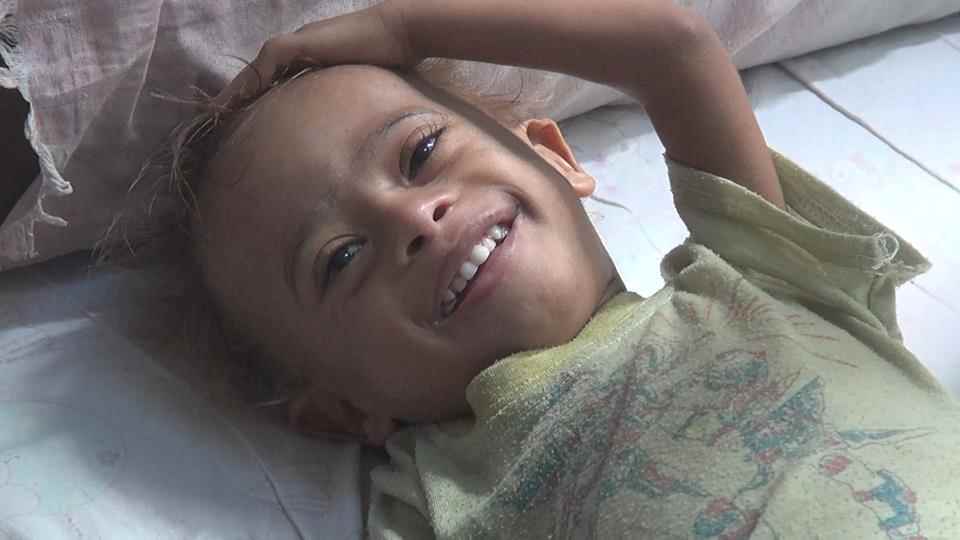
Salim’s recovery from malnutrition is no miracle: it’s all thanks to his mother’s care, this health clinic in Yemen and the UNICEF donors who keep it stocked with life-saving therapeutic food and milk. Just five weeks of treatment brought strength back to Salim's body and a smile to his face.
Hope.
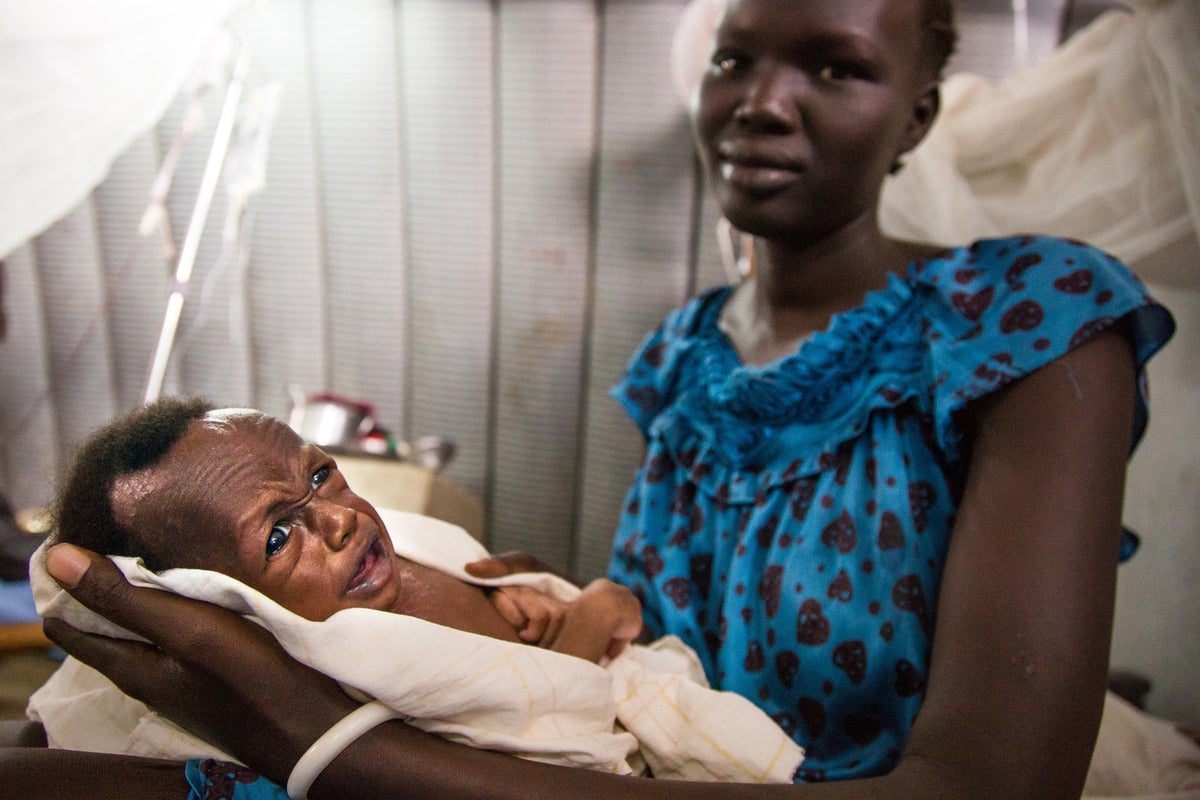
Not so long ago, Nyakena looked down at her growing belly and imagined a bright future for her family in South Sudan. She was ready to give birth to twins. Life was good.
Then, her village was burnt to the ground and, without enough to eat, her children became malnourished and grew thinner every day.
Finally, Nyakena found hope in a UNICEF-supported clinic. With the right treatment and care, her twins are putting on weight and mum is feeling optimistic. After they return to health, she wants them to become friends with children from all parts of the country, so they will never know hatred and be able to love and respect their peers.
She wants everyone in South Sudan to put away their differences and come together for the sake of their children’s futures. And, as food shortages leave 250,000 girls and boys severely malnourished, Nyakena wants more children to get the same treatment as her twins.
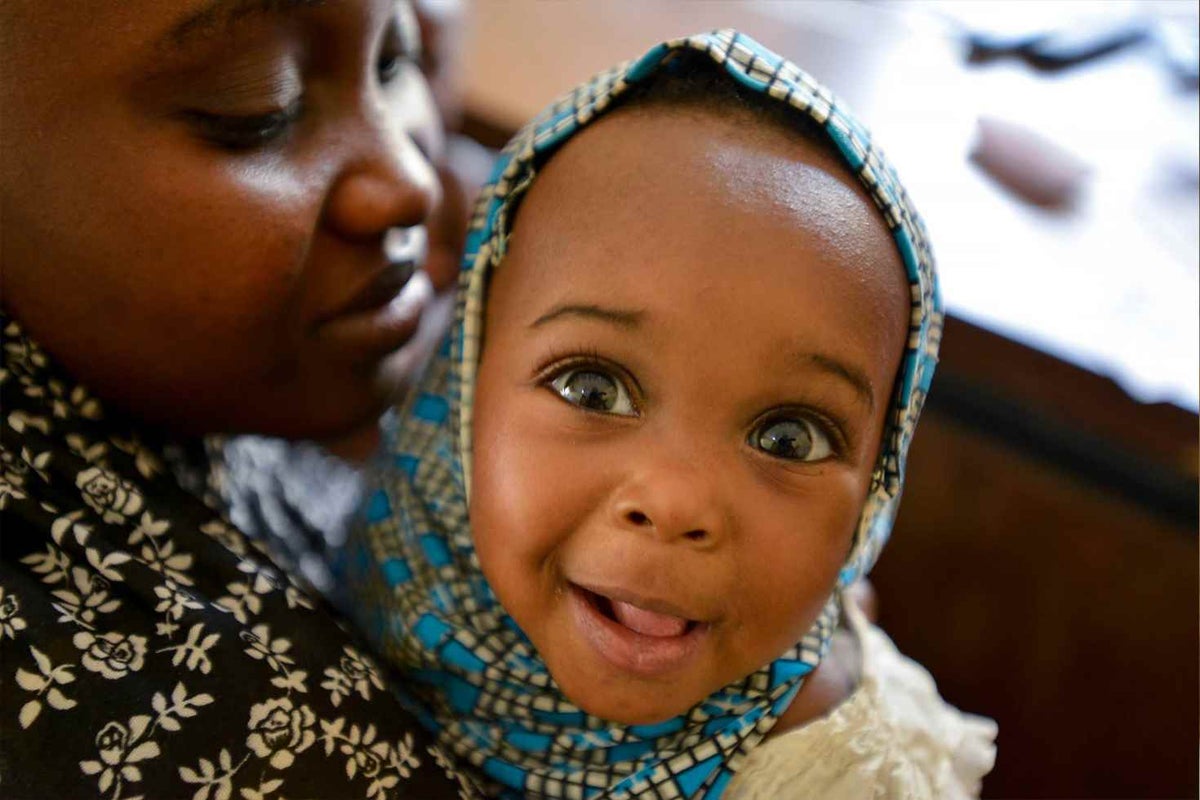
Baby Halima is looking bright-eyed and full of hope after making a full recovery from malnutrition.
With her mum’s tireless care, she’ll have the chance to grow up strong and full of energy to explore the world. She’ll go to school, choose her own future and be one of the bright young women who rebuilds a more peaceful Nigeria.
You can help save children’s lives
We have a small window to prevent a massive loss of life. 1.4 million children are severely malnourished across South Sudan, Somalia, Nigeria and Yemen but it’s not too late to stop the worst of this unfolding catastrophe.
Parents and health workers are trying incredibly hard to save children’s lives and UNICEF is working around the clock to help them.
Together we can provide life-saving therapeutic food, water and medical care to save children’s lives. Please give generously.
Related articles
Stay up-to-date on UNICEF's work in Australia and around the world



